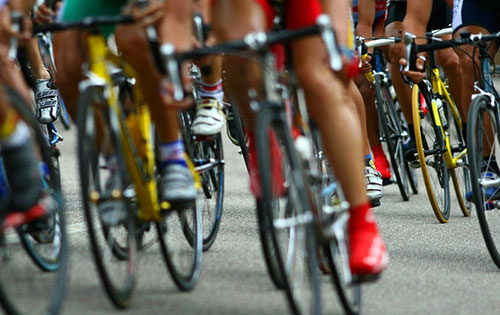 USADA announced today that Vahe Aivazian, 52, of Woodland Hills, Calif., an athlete in the sport of cycling, has accepted a four-year suspension for an anti-doping rule violation involving his possession and use and/or attempted use of multiple prohibited substances.
USADA announced today that Vahe Aivazian, 52, of Woodland Hills, Calif., an athlete in the sport of cycling, has accepted a four-year suspension for an anti-doping rule violation involving his possession and use and/or attempted use of multiple prohibited substances.
In addition to education and testing, robust anti-doping programs enable investigations stemming from various sources, including tips (Play Clean Tip Line) and whistleblowers. USADA investigations can reveal evidence about the actions of coaches, athletes, and support personnel who have engaged in, instigated, facilitated, or encouraged doping.
“An essential part of an effective anti-doping program is to work closely with athletes, coaches, and others in sport and elsewhere who want clean and fair competition and to thoroughly investigate and act on credible evidence of doping violations,” said USADA CEO Travis T. Tygart. “It’s a team effort and we need those who value clean sport to stand up, as this case demonstrates the fight for clean sport is stronger when we work together to protect clean athletes.”
This type of information led USADA to discover that Aivazian purchased products containing five different prohibited substances. After investigating further and reviewing additional materials, which USADA received in January and February 2021, USADA learned that Aivazian possessed and used and/or attempted to use five additional prohibited substances. The ten substances below, which Aivazian possessed and used and/or attempted to use, are prohibited under the USADA Protocol for Olympic and Paralympic Movement Testing, the United States Olympic and Paralympic Committee National Anti-Doping Policy, and the Union Cycliste Internationale Anti-Doping Rules, all of which have adopted the World Anti-Doping Code and the World Anti-Doping Agency Prohibited List.
- Testosterone – a Non-Specified Substance in the class of Anabolic Agents
- Nandrolone – a Non-Specified Substance in the class of Anabolic Agents
- Dehydroepiandrosterone (DHEA) – a Non-Specified Substance in the category of Anabolic Agents
- Somatropin (hGH) – a Non-Specified Substance in the class of Peptide Hormones, Growth Factors, Related Substances, and Mimetics
- Ipamorelin – a Non-Specified Substance in the class of Peptide Hormones, Growth Factors, Related Substances and Mimetics
- GHRP-6 – a Non-Specified Substance in the class of Peptide Hormones, Growth Factors, Related Substances, and Mimetics
- CJC-1295 – a Non-Specified Substance in the class of Peptide Hormones, Growth Factors, Related Substances, and Mimetics
- IGF-1 – a Non-Specified Substance in the class of Peptide Hormones, Growth Factors, Related Substances, and Mimetics
- Human chorionic gonadotropin (hCG) – a Non-Specified Substance in the class of Peptide Hormones, Growth Factors, Related Substances, and Mimetics
- Anastrozole – a Specified Substance in the class of Hormone and Metabolic Modulators
Aivazian contested his case through the applicable arbitration process until he elected to sign an acceptance of sanction form the day before the arbitration hearing in his case was to begin. Aivazian’s four-year period of ineligibility began on April 7, 2021, the date on which he accepted the sanction. In addition, Aivazian’s competitive results obtained on and subsequent to June 16, 2010, the date on which he first used prohibited substances, have been disqualified, including forfeiture of any medals, points and prizes.
In an effort to aid athletes, as well as support team members such as parents and coaches, in understanding the rules applicable to them, USADA provides comprehensive instruction on its website on the testing process and prohibited substances, how to file and update athlete Whereabouts, how to obtain permission to use a necessary medication, and the risks and dangers of taking supplements, as well as performance-enhancing and recreational drugs.
In addition, USADA manages a drug reference hotline, Global Drug Reference Online (www.GlobalDRO.com), conducts educational sessions with National Governing Bodies and their athletes, and distributes a multitude of educational materials, such as an easy-reference wallet card with examples of prohibited and permitted substances, a supplement guide, a nutrition guide, an athlete handbook, and periodic alerts and advisories.
USADA makes available a number of ways to report the abuse of performance-enhancing drugs in sport in an effort to protect clean athletes and promote clean competition. Any tip can be reported using the USADA Play Clean Tip Center, by email at playclean@usada.org, by phone at 1-877-Play Clean (1-877-752-9253) or by mail.
USADA is responsible for the testing and results management process for athletes in the U.S. Olympic and Paralympic Movement and is equally dedicated to preserving the integrity of sport through research initiatives and educational programs.
For more information or media inquiries, click here.



